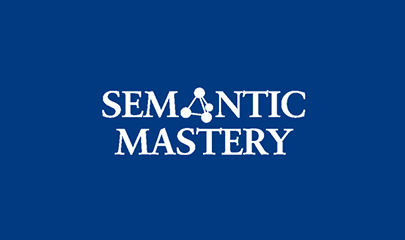-
×
 Setups of a Winning Trader By Gareth Soloway
1 × $521,00
Setups of a Winning Trader By Gareth Soloway
1 × $521,00
Understanding Economics: Game Theory By Jay Corrigan
$169,00 $5,00
Understanding economics: game theory – Digital Download!
Let’s embark on a captivating adventure to uncover remarkable insights that spark your curiosity and elevate your understanding

Understanding Economics: Game Theory By Jay Corrigan
Overview

Understanding economics: game theory
Understanding the intricacies of economic behaviors can often feel like navigating a complex maze, filled with choices, strategies, and unpredictable outcomes. Among the various theories that attempt to elucidate these behaviors, game theory stands out as a fascinating exploration of how individuals and groups make decisions in competitive and cooperative environments. In “Understanding Economics: Game Theory,” Professor Jay R. Corrigan guides learners through this intriguing domain, offering insights into the strategic interactions that shape human behavior. This educational course not only introduces participants to foundational concepts but also imparts a profound appreciation for the practical implications of game theory in real life. With a commendable rating of 4.7 out of 5, the course has garnered praise for its clarity and engaging delivery, making it an invaluable asset for anyone eager to delve into the world of economic decision-making.
Overview of game theory
Defining game theory
Game theory serves as the study of strategic decision-making, examining how individuals and groups make choices when faced with competitive and cooperative situations. Much like a chess game, players must anticipate the moves and intentions of their opponents, balancing their own goals and preferences against those of others. In this context, game theory can be viewed as a lens that magnifies the human thought process, unveiling the underlying motivations that drive our decisions.
At its core, game theory encompasses a diverse array of models and frameworks, each designed to unravel the complexities of interaction among rational agents. Some of the most renowned concepts within game theory include the prisoner’s dilemma, chicken game, and coordination games. These constructs illustrate a spectrum of strategic situations, shedding light on the nuances of cooperation, competition, and conflict resolution.
Key concepts in game theory
Understanding the key concepts within game theory is essential for grasping the bigger picture. Here are some of the foundational elements:
- Prisoner’s Dilemma: A scenario in which two individuals must decide whether to cooperate or betray one another. The results highlight how rational decisions can lead to suboptimal outcomes when trust is broken.
- Game of Chicken: In this strategic interaction, two players must choose between cooperating and competing, with dire consequences if neither backs down. It serves as an effective metaphor for various competitive situations, such as negotiations or military standoffs.
- Mixed Strategies: Refers to situations where players randomly choose their strategies to keep opponents uncertain, emphasizing the role of unpredictability in decision-making.
- Coordination Games: These emphasize achieving mutual benefit through cooperation, illustrating the importance of communication and alignment in decision-making processes.
Each of these concepts serves as a building block, contributing to a richer understanding of economic interactions.
Course structure and content
Engaging presentation
Professor Jay R. Corrigan’s instructional style shines throughout the course, characterized by a responsive and engaging approach that captivates learners’ attention. He adeptly presents complex theoretical frameworks in a manner that is both accessible and interesting, akin to a seasoned storyteller drawing listeners into an enthralling narrative. The use of thought-provoking questions, illustrations, and real-world examples helps bridge the gap between theory and practical application.
In the course, Professor Corrigan tackles topics such as repeated games, auctions, and game theory’s relevance in business and public policy. This multifaceted exploration underscores how theoretical concepts manifest in everyday decision-making, fostering a deeper comprehension of human behavior in diverse contexts. Learners are encouraged to actively engage with the material, often reflecting on their own experiences and insights.
Real-world applications
One of the standout features of this course is its dedication to real-world applications of game theory. Each lecture weaves in practical examples that highlight how strategic decision-making plays out across various domains. For instance, when discussing auctions, the course provides detailed analyses of bidding strategies in both online and offline environments. This attention to real-world relevance imbues learners with a sense of urgency and purpose, demonstrating the immediate impact of game theory on personal, social, and economic spheres.
Moreover, the discussions on the prisoner’s dilemma encourage participants to reflect on the nature of cooperation and competition in their daily lives. This connection to tangible experiences enables learners to internalize theoretical concepts more deeply, ensuring they leave the course equipped with valuable insights into decision-making dynamics.
Student feedback and reviews
Tapping into the thoughts and experiences of participants unveils the full spectrum of the course’s impact. Reviews reveal the positive reception of Professor Corrigan’s teaching style, with many learners highlighting how his enthusiasm for the subject matter enhances the overall learning experience. The clarity of his explanations helps demystify intricate concepts, making them more palatable for individuals with varying levels of familiarity with economics.
Positive experiences
Many students express appreciation for the course’s ability to foster critical thinking and encourage exploration beyond the confines of theoretical concepts. Here are some standout positive feedback points from learners:
- Intriguing Thought Experiments: Students laud the engaging thought experiments that challenge them to apply theoretical concepts to novel situations, enhancing their analytical skills.
- Practical Implications: Reviewers frequently mention how the course elucidates the real-world implications of game theory, bridging the gap between theory and practice effectively.
- Comprehensive Coverage: The breadth of topics covered is another recurring theme in reviews. Learners find the discussions expansive yet coherent, providing a well-rounded understanding of game-theoretic concepts.
Areas for improvement
While the course has garnered overwhelming acclaim, some reviewers suggest potential improvements. A few students noted a tendency to revisit certain concepts multiple times, indicating that a more streamlined approach could help maintain engagement. Feedback pointed towards a desire for brevity, suggesting a reduction in repetitive explanations could enhance the overall flow of the course.
Despite these critiques, the overall sentiment remains overwhelmingly positive, with many students expressing gratitude for the knowledge gained and newfound appreciation for the decisions that shape economic interactions.
Conclusion
In summary, Understanding Economics: Game Theory by Professor Jay R. Corrigan emerges as an engaging and enriching educational experience, successfully demystifying the intricate dynamics of strategic decision-making. Through practical examples, thought-provoking discussions, and a clear connection to real-world applications, this course stands as a significant contribution to the understanding of economics. Whether you are a novice exploring economic principles or a seasoned professional seeking to refine your strategic acumen, this course promises a valuable journey into the world of game theory. With its focus on cooperation, competition, and human behavior, it undoubtedly stimulates curiosity and encourages deeper contemplation about the decisions we make every day.
Frequently Asked Questions:
Innovation in Business Models: We use a group purchase approach that enables users to split expenses and get discounted access to well-liked courses. Despite worries regarding distribution strategies from content creators, this strategy helps people with low incomes.
Legal Aspects to Take into Account: Our operations’ legality entails several intricate considerations. There are no explicit resale restrictions mentioned at the time of purchase, even though we do not have the course developers’ express consent to redistribute their content. This uncertainty gives us the chance to offer reasonably priced instructional materials.
Quality Control: We make certain that every course resource we buy is the exact same as what the authors themselves provide. It’s crucial to realize, nevertheless, that we are not authorized suppliers. Therefore, the following are not included in our offerings: – Live coaching sessions or calls with the course author.
– Entry to groups or portals that are only available to authors.
– Participation in closed forums.
– Straightforward email assistance from the writer or their group.
Our goal is to lower the barrier to education by providing these courses on our own, without the official channels’ premium services. We value your comprehension of our distinct methodology.
Be the first to review “Understanding Economics: Game Theory By Jay Corrigan” Cancel reply
You must be logged in to post a review.
Related products
Yoga & Fitness



















Reviews
There are no reviews yet.